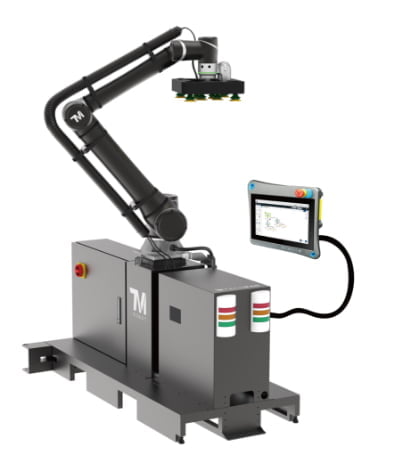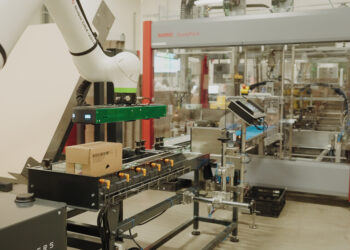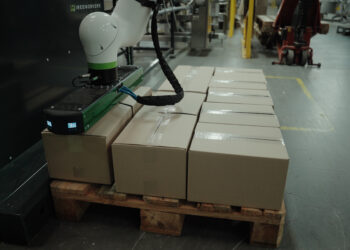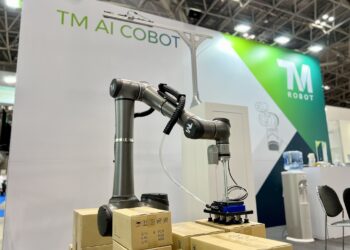Thanks to collaborative robots, the possibilities for industrial automation have increased significantly, especially among small and medium-sized enterprises. One of the most popular applications is palletizing. It is relatively easy to set up such an application, with plug-and-play palletizing cobots, and it is perfect for increasing efficiency, reducing costs and improving employee well-being. In this blog, we'll take a closer look at the benefits of automated palletizing.
Wellbeing of employees
Stacking boxes on a pallet is a physically and mentally demanding task for workers. It is a repetitive, monotonous task that requires little creativity, initiative or problem-solving skills. Consequently, it is difficult for people to perform it consistently throughout an entire shift, and mistakes are easily made as a result. In addition, heavy lifting can cause long-term health problems. It is in the top three for musculoskeletal injuries, and because it can cause fatigue and overexertion, it is also a frequent cause of accidents, as workers become less focused.
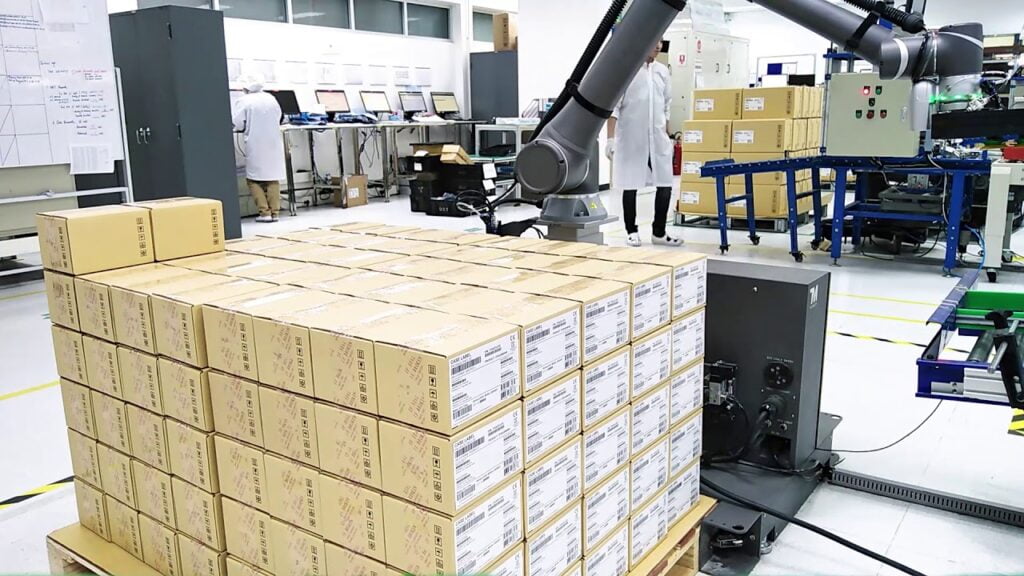
Automating palletizing spares workers from heavy lifting and performing monotonous tasks for long periods of time. Workers can then focus on tasks that are more challenging, which also contributes to employee satisfaction.
Productivity
Both humans and robots have their own strengths, but what a robot is really good at is increasing productivity and efficiency. Robots can work 24 hours a day without getting tired, don't need breaks and can therefore ensure that production capacity is maximized. In addition, a cobot provides space for employees to be of value elsewhere in the production process. Not only is more produced with the same people. Because these tasks are somewhat more challenging, employees become happier (as indicated above) which in turn makes them more productive. After all, the ultimate goal of automation is not to remove people, but to utilize them to their strengths.
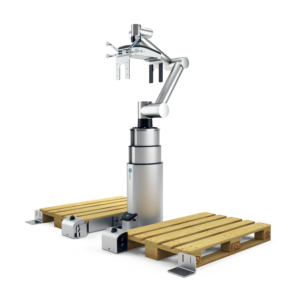
Consistent load
Some things can go wrong when loading a pallet manually. Boxes can be misplaced, causing boxes to overhang or making the load unstable. Collaborative robots, unlike humans, are extremely accurate. Most cobots have a repeat accuracy of 0.1mm. Therefore, they will always stack the load exactly as desired. In other words, the load is placed perfectly on top of each other, making it stable and preventing errors and product damage. In addition, less time needs to be spent checking the load before it is shipped.
Flexibility
Collaborative robots are characterized by their flexibility. That is, they can quickly and easily perform different tasks. Within a production environment where low volumes and high flexibility of goods occurs, a cobot can be the perfect solution to be able to automate the loading of pallets. Thanks to the user-friendly software, change in format, product or pallet pattern can be easily adjusted. In addition, cobot palletizers are mobile and can work wherever in production it is needed at the time.
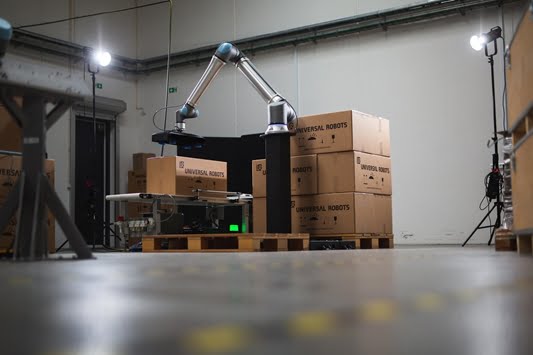
Plug-and-play palletizers
In times of Industry 4.0, workforce shortages, automation is a great way to stay competitive and future-proof. We, WiredWorkers, specialize in collaborative robot solutions and offer several plug-and-play cobot palletizers. A cost-effective, easy-to-use, performance-enhancing and versatile solution with built-in software that allows operators to quickly set up the stacking of packages and boxes on pallets.
Curious about the possibilities? Contact us or schedule a free cobot consultation!
